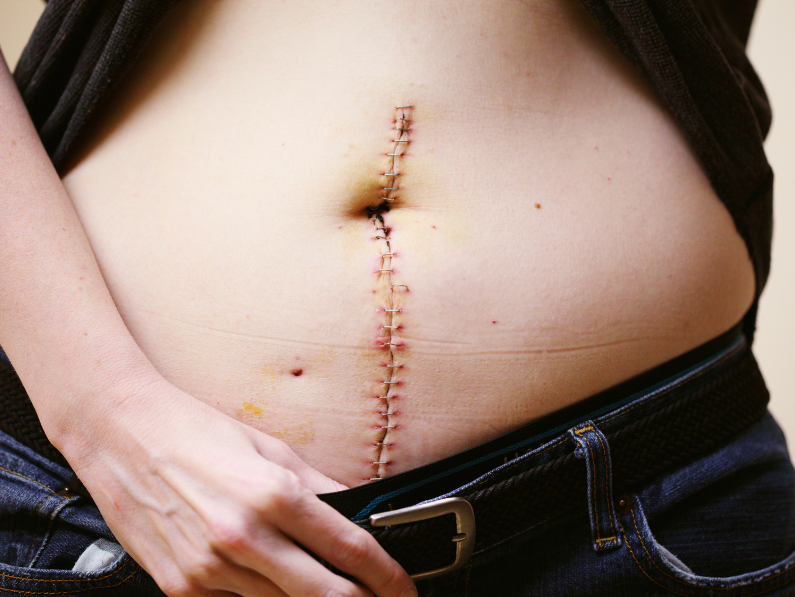Skin aging has always fascinated me. Ever since my early teens, I was consumed with learning about how I could protect and preserve the youth and health of my skin. I purchased my first anti-aging skincare regimen when I was 20. And, while I was laughed at and had many people tell me I was “too young” to worry about aging I disagreed. It was my belief that if I took really good care of my skin during my 20’s I would be able to maintain healthy ageless skin well into my later years. After, beauty school and working in the spa, cosmetic, and wellness industry I have learned that my earlier sentiment was indeed correct.
Learning how to take care of your skin properly when you’re younger can help you to age gracefully and naturally. While also saving you a ton of money when it comes to costly beauty procedures and treatments. So, I want to share with you the anti-aging habits you need to develop now in your 20’s that will help you maintain healthy, beautiful, ageless skin.

Page Contents
Skin Aging in Your 20’s
There are two main factors that influence the aging process. These factors are known as intrinsic (internal) and extrinsic (external) factors. Intrinsic factors are things beyond your control such as genetics and hereditary. For example, if your mom struggled with pigmentation issues as she aged then you’re genetically disposed to have hyperpigmentation issues. Whereas, extrinsic factors are the health and lifestyle habits that you have control over. For instance, if you choose to sunbathe you increase your risk of developing wrinkles prematurely and getting sunspots.
Your health, lifestyle and wellness habits play a major role in how rapidly your skin ages. Taking the time to practice healthy habits regarding nutrition, skincare and lifestyle can positively influence those extrinsic aging factors.
Extrinsic Aging Factors in Your 20’s
During your mid to late ’20s, there are internal changes that your body goes through on a cellular level. For starters, cellular turnover begins to decrease. Secondly, hormonal imbalances can contribute to issues with adult acne. Lastly, you may notice that your skin becomes drier and is more difficult to stay hydrated. As your body is undergoing these physiological changes it becomes more important to infuse healthy anti-aging habits into your daily lifestyle. The three habits you should focus on are nutrition, proper skincare, and healthy lifestyle habits.

Nutrition is the Foundation
I want to talk about nutrition first because it’s so important when it comes to overall health and well-being. Following a diet that consists of whole, minimally processed foods are beneficial for your body and your skin. Many of the nutrients found in fruits, vegetables, and whole grains help to support the health and integrity of your skin from the inside out.
Collagen Boosting Foods
The nutrients found in these fruits and vegetables help to increase collagen production. This helps your skin maintain it’s plump firm appearance.
- Kiwi
- Berries
- Almonds
- Avocado
- Garlic
- Carrots
- Leafy Greens
Acne-Fighting Foods
These foods are beneficial for improving the appearance of acne. This is due to their ability to decrease inflammation, boost immunity and strengthen cell walls.
- Nuts
- Tomatoes
- Eggs
- Legumes
- Pumpkin seeds
- Garlic
- Brown Rice
- Blueberries
- Salmon
- Broccoli
- Green Tea
- Sweet potatoes
Antioxidant-Rich Foods
Antioxidants are an important part of any anti-aging regimen. Primarily, antioxidants are responsible for decreasing and reducing oxidative stress within the body. Consequently, this decreases inflammation and cellular damage which compromises the skin structure and can increase cellular aging of skin cells.
Antioxidants can be found in:
- Berries
- Beets
- Kale
- Spinach
- Plums
- Raisins
- Corn
- Apples
- Pecans
- Artichoke
- Goji Berries
- Broccoli
- Tomatoes
- Prunes

Anti-Aging Skin Care
In addition to consuming a nutrient-dense diet; using products that contain high-performance anti-aging ingredients can also help to boost collagen production, increase cellular turnover, manage hormonal acne, and protect skin from oxidative damage.
Stimulate Collagen Production
These ingredients are essential when it comes to stimulating collagen production. They help to improve collagen and elastin production and maintain the skin’s fullness.
- Retinol
- Copper
- Vitamin B3
- Glycolic Acid
- Peptides
Increase Cellular Turnover
During your mid-twenties, skin renewal slows down. This means your skin isn’t getting rid of dead skin cells as often as it used to which can result in a more dull, rough appearance. It can also lead to complications with clogged pores which may trigger breakouts and blemishes. Taking the time to include exfoliation as a part of your regular skincare regimen will help to improve cellular turnover and keep the skin looking fresh and renewed.
When choosing exfoliating products look for products that contain chemical exfoliating ingredients since scrubs and manual exfoliators can be a bit rough on the skin. If you find that you are sensitive to chemical exfoliating ingredients you can always use enzyme exfoliating ingredients which provide the same exfoliating and softening benefits minus the irritation. Examples of exfoliating ingredients to look out for are:
- Glycolic Acid (chemical exfoliant)
- Lactic Acid (chemical exfoliant)
- Salicylic Acid (chemical exfoliant best for breakout-prone skin)
- Pumpkin (enzyme exfoliator)
- Papaya (enzyme exfoliator)
- Pineapple (enzyme exfoliator)
You can find these ingredients in cleansers, exfoliating masks or treatments.
Protect Skin from Environmental Damage
A major external factor that plays a role in skin aging is environmental damage from pollution and sun damage. Using products with ingredients that protect the skin from these environmental aggressors can help with decreasing premature aging. Products such as broad-spectrum sunscreen help to protect the skin from UVA rays. UVA rays are termed the “aging” rays because they penetrate into the deeper layers of the skin and impair collagen production. Consequently, this leads to the skin becoming loose and causes the skin to wrinkle. They are also responsible for causing skin discoloration in the form of sunspots or age spots. The damaging effects of the sun are not noticed immediately but are seen in the later stages of the aging process in the late ’30s-’40s.
Antioxidants as discussed earlier are helpful in protecting the skin from oxidative damage. Additionally, antioxidants can be found in many of the skincare products that you use. Popular antioxidants used in skin care products include Vitamin C, Vitamin E, DMAE, Niacinamide, and CoQ10.
Anti-Aging Lifestyle Habits
The final pillar of anti-aging wellness deals with making healthy changes to your lifestyle. Key habits you may want to begin as part of your healthy lifestyle include:
- Becoming more physically active
- Stop smoking
- Create a healthy skincare routine
- Get regular facials
Making these simple changes can have a positive impact on your health while influencing the skin aging process. Starting with these simple basic habits in your mid to late ’20s can help you to age gracefully and create lasting health and wellness for your skin and body.
About the Author.
 Hi, my name is Kathleen but you can call me Kat. I am an Esthetician, Lifestyle Wellness Coach, Content Creator, and Writer. My intention is to provide you with education and awareness about women’s health, nutrition, fitness, beauty, wellness, and lifestyle. I primarily help women that are seeking holistic and natural solutions to managing their chronic condition, improving their lifestyle and combating anti-aging concerns. I offer coaching programs and courses that are designed to help you redefine your health and defy aging. You can find my content on a variety of social media platforms such as YouTube, Facebook, and Instagram. If you take the opportunity to visit me on my other platforms don’t hesitate to leave a message, I would love to hear from you!
Hi, my name is Kathleen but you can call me Kat. I am an Esthetician, Lifestyle Wellness Coach, Content Creator, and Writer. My intention is to provide you with education and awareness about women’s health, nutrition, fitness, beauty, wellness, and lifestyle. I primarily help women that are seeking holistic and natural solutions to managing their chronic condition, improving their lifestyle and combating anti-aging concerns. I offer coaching programs and courses that are designed to help you redefine your health and defy aging. You can find my content on a variety of social media platforms such as YouTube, Facebook, and Instagram. If you take the opportunity to visit me on my other platforms don’t hesitate to leave a message, I would love to hear from you!






